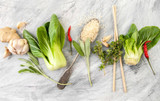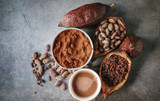Have you ever thought about giving up your favourite treats like chocolate bars, lollies, cakes, soft drinks but never had the motivation? Then, why not take on the Sugar Free September challenge?
Each year Muscular Dystrophy NSW (MDNSW) hosts their Sugar Free September Challenge to educate Australians about healthy eating and lifestyle changes, while also raising funds for their Muscular Dystrophy community.
This is your opportunity to make a positive impact on yourself and others. Your involvement goes beyond raising awareness about neuromuscular conditions and raising vital funds to support children, adults, and their families affected by these conditions.
By participating, you'll not only improve your own health and wellbeing, but your efforts will also contribute to the enhancement of Muscular Dystrophy NSW programs and services and will help empower, connect and support people with neuromuscular conditions so they can live the life they choose. It’s a win-win!
We have teamed up with MDNSW as one of their prize donors, but that's not all!
This year we have also teamed up with our talented food blogger Estelle Rose (@est.elle.rose) and Accredited Practicing Dietitian (APD) and Nutritionist, Annaleise Collier (@yourgutfeel), to create 2 amazing new recipes, one sweet and one savoury, with NO processed sugar in it! Plus, read on for some top tips on how to manage sugar in your diet!

1 - Say hello to the rich, bold flavours of this sticky barbecue chicken with blackstrap molasses and Dijon mustard. We're talking about a chicken dish that's not just food: tender chicken, marinated and coated in a luscious blend of molasses goodness and Dijon's tangy charm. It's like a culinary hug for your taste buds!
Sticky Barbecue Chicken Recipe with Blackstrap Molasses and Dijon Mustard Recipe
2 - Say hello to sweet delight: Honey Cake with Labneh Frosting! Why honey, you ask? Well, it's not just any sweetener – it's the golden touch that takes our cake game to the next level This is the kind of cake that's made for those leisurely moments with a cup of tea or coffee in hand.
Honey Cake with Labneh Frosting Recipe
What is Sugar?
Sugars are carbohydrates the body converts to glucose. Glucose is used as the main source of energy for the body’s cells. Insulin is a hormone excreted from the pancreas that moves glucose from the blood to cells to be used as energy. Consuming sugars in excess over long periods of time can cause insulin resistance leading to diabetes.
When blood sugars are low this can cause fatigue as the body’s cells are lacking energy – this is a big cause of the ‘3 pm slump’. Having low GI meals and snacks can help avoid this by keeping blood sugar levels consistent, avoiding spikes and crashes.
To put it simply, there are two types of sugars – simple and complex.
Simple/refined sugars are digested and absorbed faster, causing a higher spike in blood glucose levels. Top sources of simple sugar foods include white bread, white flour, cakes, pastries, cereals and table sugar.
Complex sugars take longer to digest, therefore help with satiety and generally contain more fibre assisting in regulating blood sugar levels and acting as a prebiotic. Examples of complex sugars/carbohydrates include fruit, vegetables, whole grains, and legumes.
Alternative Sweeteners
Sugar alternatives such as stevia, monk fruit and xylitol contain <0.2mg of sugar per 100g. These sugars are metabolised differently and do not have the same effect on blood glucose levels.
There are also many other natural sweeteners that provide great alternatives to processed sugars and which can be easily substituted into your baking & cooking. Some of our favourite alternative sweeteners are:
Organic Agave Syrup: a low GI sweetener made from the blue agave plant, the same plant used to make tequila. Agave syrup is similar in taste to honey making it a great vegan substitute. Agave is often used to sweeten cold drinks or cocktails as it dissolves quickly.
Organic Blackstrap Molasses: a thick, dark, strong-flavoured syrup made from the extraction process of sugar cane juice. It has a rich, full-bodied robust flavour which gives natural caramel colour and tones when baking. Extremely rich in the vitamin inositol, B Vitamins, copper, phosphorus, calcium, iron and potassium.
Organic Coconut Syrup: crafted from nectar derived from organic coconut palm blossoms, this natural sweetener has a low glycemic index of 35, which makes it a healthier substitute for other sweeteners.
Organic Coconut Sugar: a great sweetener alternative, minimally processed to ensure it retains its naturally high-mineral and nutrient content. It has a delicious toffee-like flavour with a slight hint of coconut and can be substituted for other sugars 1:1 in baking.
Organic Maple Syrup: crafted from 100% pure Canadian maple tree sap, this classic pancake topping contains less fructose than other sweeteners and more iron, calcium, zinc, manganese and potassium than honey.
Organic Maple Sugar: a delicious alternative to cane sugar, it retains the nutritional benefits of maple syrup including antioxidants, manganese, zinc, magnesium, riboflavin, calcium and potassium. A teaspoon of maple sugar contains fewer calories than other sugars and is easier to digest.





![Introducing Yarra Valley Tea [Supplier Spotlight] Introducing Yarra Valley Tea [Supplier Spotlight]](https://cdn11.bigcommerce.com/s-dis4vxtxtc/images/stencil/160w/uploaded_images/blog-thumbnail-yarra-valley.jpg)
![Introducing Matcha Maiden [Supplier Spotlight] Introducing Matcha Maiden [Supplier Spotlight]](https://cdn11.bigcommerce.com/s-dis4vxtxtc/images/stencil/160w/uploaded_images/blog-thumb-matcha-maiden.jpg)

![Introducing Fangst [Supplier Spotlight] Introducing Fangst [Supplier Spotlight]](https://cdn11.bigcommerce.com/s-dis4vxtxtc/images/stencil/160w/uploaded_images/blog-thumbnail-fangst.jpg)